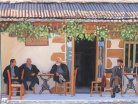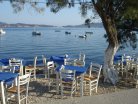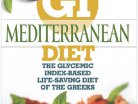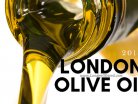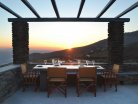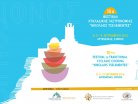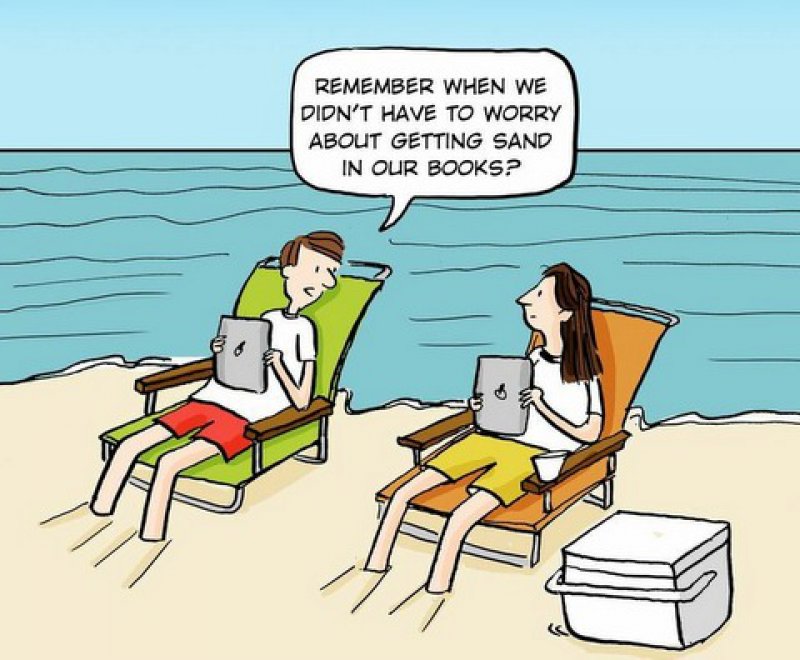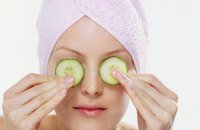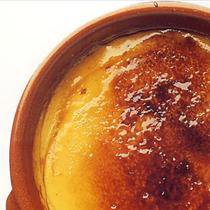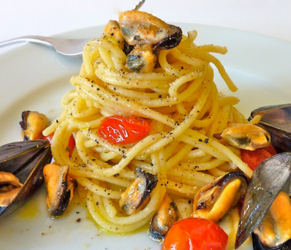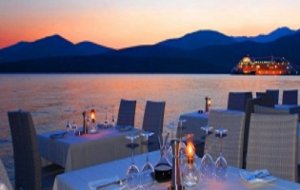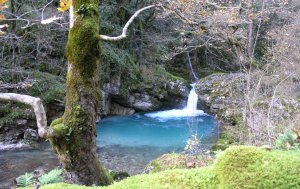There are at least twelve important reasons to take a break, all of which are directly related to good physical health and mental well-being. Experts insist that holidays are a vital necessity, and not a luxury. Here’s why...
The value of regular breaks has been recognized for as long as people have been working. Our bodies need a detox from the "toxins" of work, as well as a more general break from the stress and pollution generated by life in urban centers. But a holiday is essential even for those not residing in built-up areas, even for those not working. Monotony reduces the efficiency of brain cells; brain cells become most productive when introduced to new surroundings and new stimulants. Furthermore, the living and working conditions of today’s day and age create the dire need to take a break.
1. Less of a sedentary lifestyle = better health
The distinguishing characteristic of the human race, the homo erectus, is our ability to stand upright. These days, however, we appear to have become homo sedentarius and this has given rise to a host of new problems. Recent epidemiological studies rank most modern muscular-skeletal conditions as major public health problems and attribute them to the many hours we spend seated while working. Therefore, we should take long breaks from such unnatural conditions, in order to alleviate the consequences of a sedentary lifestyle. In going on holiday, we are forced to exercise the body. Even those who are not athletes will be walking greater distances than the distances that separate the office from the parking lot, while on holiday. As well as walking, you’re more likely to go swimming on a summer holiday. Whether traversing a new city or playing volleyball at the beach, vacations allow you to up your fitness levels, while revitalizing your circulation and increasing immunity.
2. Building better health
Holidays not only improve our fitness levels, but also contribute towards a general improvement in health. While on holiday, mysterious chronic disorders suddenly disappear. This is particularly true for gastrointestinal conditions where improvement can range from 60% to 100%. The cause for this is most likely psychological rather than purely dietary, since our eating habits are usually less healthy while away on vacation.
3. Strengthening the lungs
Pollution is a worldwide phenomenon, but provincial areas are generally less affected by this problem than urban centers, while islands are even less affected than mainland provincial areas. In the clean air of the countryside, your lungs will begin to function better within just three days. From day one, your lungs will begin to expel the carbon monoxide accumulated from the pollution of urban centers with their automobile exhaust fumes. By the second day, your lungs will no longer carry even a trace of carbon monoxide, thus reducing the likelihood of severe respiratory infections later on.
4. Real taste and smell
The population and smog of the city, just like cigarettes, affect one’s sense of taste and smell. Research has shown that within 48 hours of quitting smoking, the proper functioning of these two senses returns. This is primarily due to the absence of the strong stimulants that alter the epithelium of the tissue in the mouth and the nose.
5. Improved sleep
A reduction in stress levels while on holiday, in combination with the relative peace and quiet that prevails at most vacation areas, is quite conducive to sleep. Although many claim that they are unaffected by, or perhaps immune to, noise pollution, our bodies interpret the constant noise as a threat. The upshot of this, amongst other problems, is very superficial or poor-quality sleep. However much we might believe that we are accustomed to it, the body doesn’t stop responding to noise. In other words, sleep in the countryside or other peaceful environments is always of higher quality.
6. Good health due to peace and quiet
The relative peace and quite of the countryside allow the acoustic nerve to rest and recover. Exposure to noise pollution, especially for extended periods of time, increases susceptibility to infections as well as cardiological problems. Peace and quiet substantially reduces cholesterol levels, blood pressure, and the likelihood of getting anything from headaches to colitis.
7. Natural light and hormonal balance
Working in offices, we are no longer exposed to the natural fluctuations of sunlight that occur during the day. Instead, we are exposed to steady, technical light. But the human body is made in such a way as to respond to changes in stimuli, even at the cellular level. Therefore, the human body has developed into an organism that accepts and expects the daily fluctuations of sunlight. When we lose eight hours a day of this natural fluctuation for many days straight, a condition called the Buchner syndrome appears, with symptoms ranging from headaches to gastrointestinal disorders. Exposure to natural light for a period of three weeks can largely redress the imbalance brought on by long periods of time spent in office conditions.
8. For a more… fertile relationship
Pollution directly influences the quality and quantity of male sperm, as well as estrogen levels in women. Although reduced fertility due to environmental pollution can’t be fully corrected by a 10-day holiday, cleaner environments improve fertility. Curiously, long-term exposure to pollution leads to a decrease in male births, while female births remain unchanged. In provincial areas that are relatively pollution-free, the balance of male-female birth does not display unnatural fluctuations. In Athens, pollution leads to an estimated loss of at least 400 male births per decade. Is it safe to assume that a couple will have less trouble producing a child if they go on vacation? Theoretically, the answer is yes. Their likelihood is increased, even just slightly.
9. A longer life
Mortality rates in urban centers during summer are higher than those of the provinces. Unfortunately, no study has yet to be undertaken to show how much longer life expectancy can be extended by taking regular holidays. Recent studies carried out by the World Health Organization indicate that 5% of deaths in urban centers are due to pollution. Because there are so many variables, researchers have had difficulties producing studies that determine definitively the affects of pollution and urban life. The one thing that is certain, however, is that anything that interrupts the exposure of the body to harmful factors can only have a positive effect.
10. Asymmetry and imperfections create balance
Holidays in the countryside give the brain an opportunity to take a break from the dry, square logic of the city, and to lose itself in the sentimentalism of curves, hills and imperfect shapes. The optic field afforded by cities is oppressively associated with the usual width of a road, and the right angles of buildings, streets, and city squares. On holiday, we often find ourselves on narrow winding lanes that meander in and around the villages; the eyes can wander over the curves and slopes of a mountain, and the point on the horizon where sea meets sky. In effect, the "perfection" of urban living (its ideals technical lighting, regulated temperatures, etc) cause us added stress rather than relaxation. In fact, relaxation is always associated with the imperfections of nature (i.e., the fluctuations in light, imperfect shapes and forms, natural ventilation, etc).
11. Colors soothe the eye
The grey that predominates in offices and most other urban buildings has been proven to increase the pulse rate much more than a multi-colored room and therefore, although a neutral color, it is a significant cause of stress. Holidays interrupt the constant bombardment of the grey tones that come with urban centers. Eye specialists recognize that the most relaxing view for the human eye is an open visual field that lacks strong contrasts- landscapes such as the sea or the sunset.
12. We become nicer people on holiday
While on holiday, a person escapes the over-population of urban centers and human presence becomes welcome. That is, while in cities we continually bump into strangers and the human presence ends up being perceived as an unwelcome superfluity. On holiday we begin to miss others, we long for their company and subconsciously begin to value their presence. In an experiment conducted on two city streets (a busy one and a relatively quiet one), a blind man lost his balance and fell while attempting to cross the street. Passersby on the busy street were far less willing to offer assistance than those of the quiet one. The findings of this study and many others confirmed that medium level noise pollution significantly disturbs our emotional balance, making us more irritable, less willing to help our fellow man, less tolerant, and more threatened.
How beneficial are regular, short breaks?
Some people prefer to take shorter, but more frequent breaks throughout the year rather than all of their holiday leave at once. Experts, however, agree that at least three continuous weeks are necessary for the body to rid itself of the toxins of work. Regular, shorter breaks are not as beneficial to the body as one month of uninterrupted freedom.
Here are 12 Reasons to Take a Vacation
If you’re under the impression that the only thing a holiday can offer is rest and recreation, let me put it to you simply: you’re wrong.
Category:










